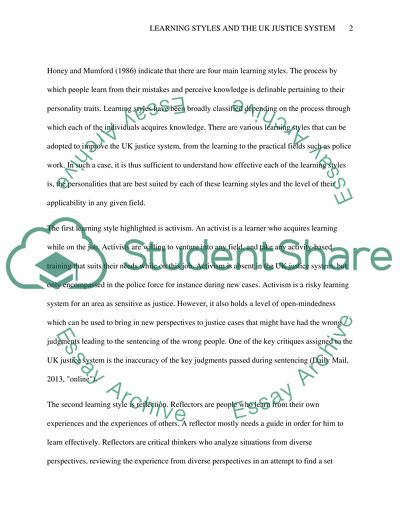Cite this document
(“In reference to Honey and Mumford's (1986) Learning Styles, crticially Essay”, n.d.)
In reference to Honey and Mumford's (1986) Learning Styles, crticially Essay. Retrieved from https://studentshare.org/miscellaneous/1640653-in-reference-to-honey-and-mumfords-1986-learning-styles-crticially-evaluate-how-learning-styles-can-influence-practice-in-the-criminal-justice-environment
In reference to Honey and Mumford's (1986) Learning Styles, crticially Essay. Retrieved from https://studentshare.org/miscellaneous/1640653-in-reference-to-honey-and-mumfords-1986-learning-styles-crticially-evaluate-how-learning-styles-can-influence-practice-in-the-criminal-justice-environment
(In Reference to Honey and Mumford'S (1986) Learning Styles, Crticially Essay)
In Reference to Honey and Mumford'S (1986) Learning Styles, Crticially Essay. https://studentshare.org/miscellaneous/1640653-in-reference-to-honey-and-mumfords-1986-learning-styles-crticially-evaluate-how-learning-styles-can-influence-practice-in-the-criminal-justice-environment.
In Reference to Honey and Mumford'S (1986) Learning Styles, Crticially Essay. https://studentshare.org/miscellaneous/1640653-in-reference-to-honey-and-mumfords-1986-learning-styles-crticially-evaluate-how-learning-styles-can-influence-practice-in-the-criminal-justice-environment.
“In Reference to Honey and Mumford'S (1986) Learning Styles, Crticially Essay”, n.d. https://studentshare.org/miscellaneous/1640653-in-reference-to-honey-and-mumfords-1986-learning-styles-crticially-evaluate-how-learning-styles-can-influence-practice-in-the-criminal-justice-environment.


